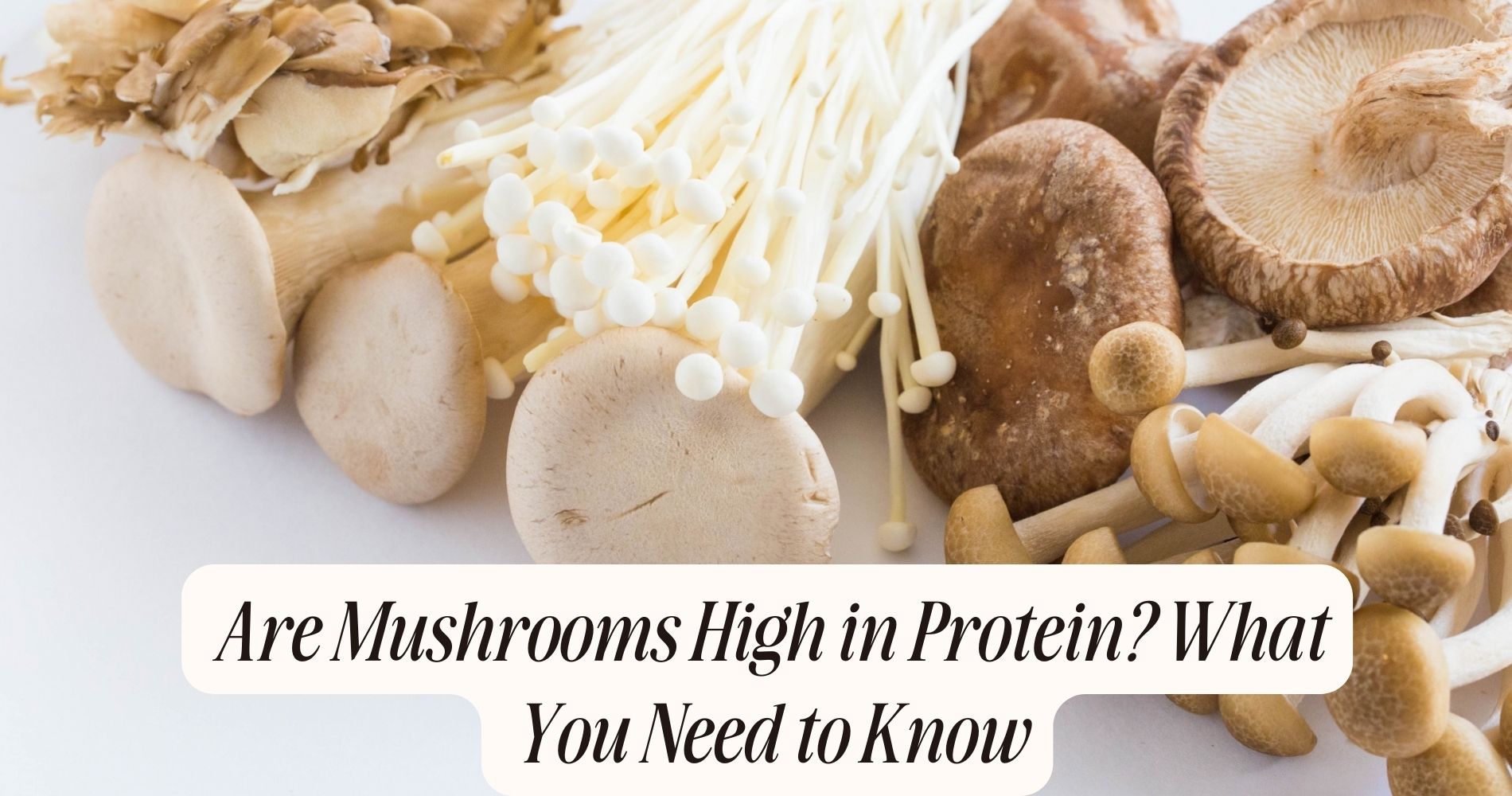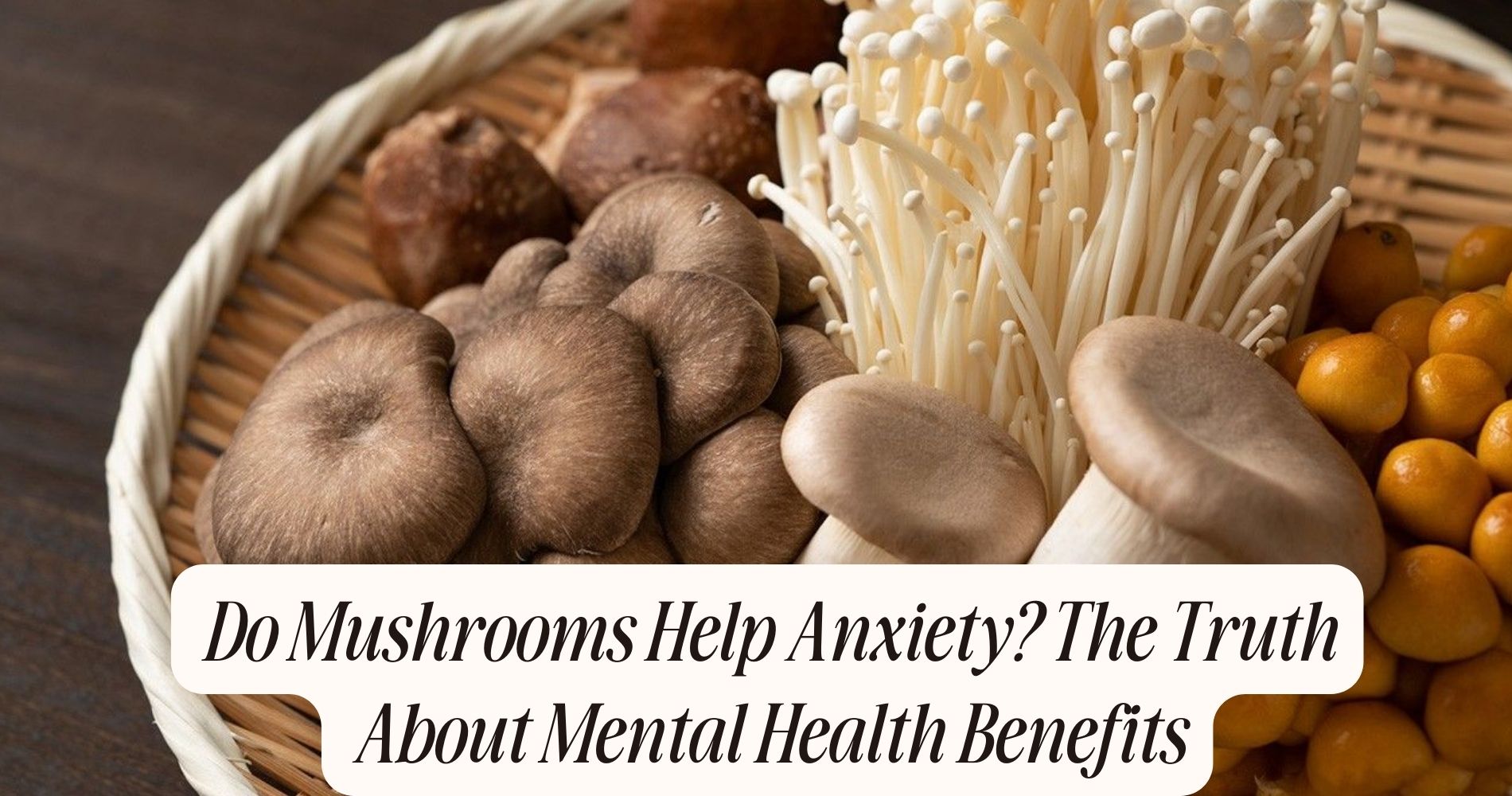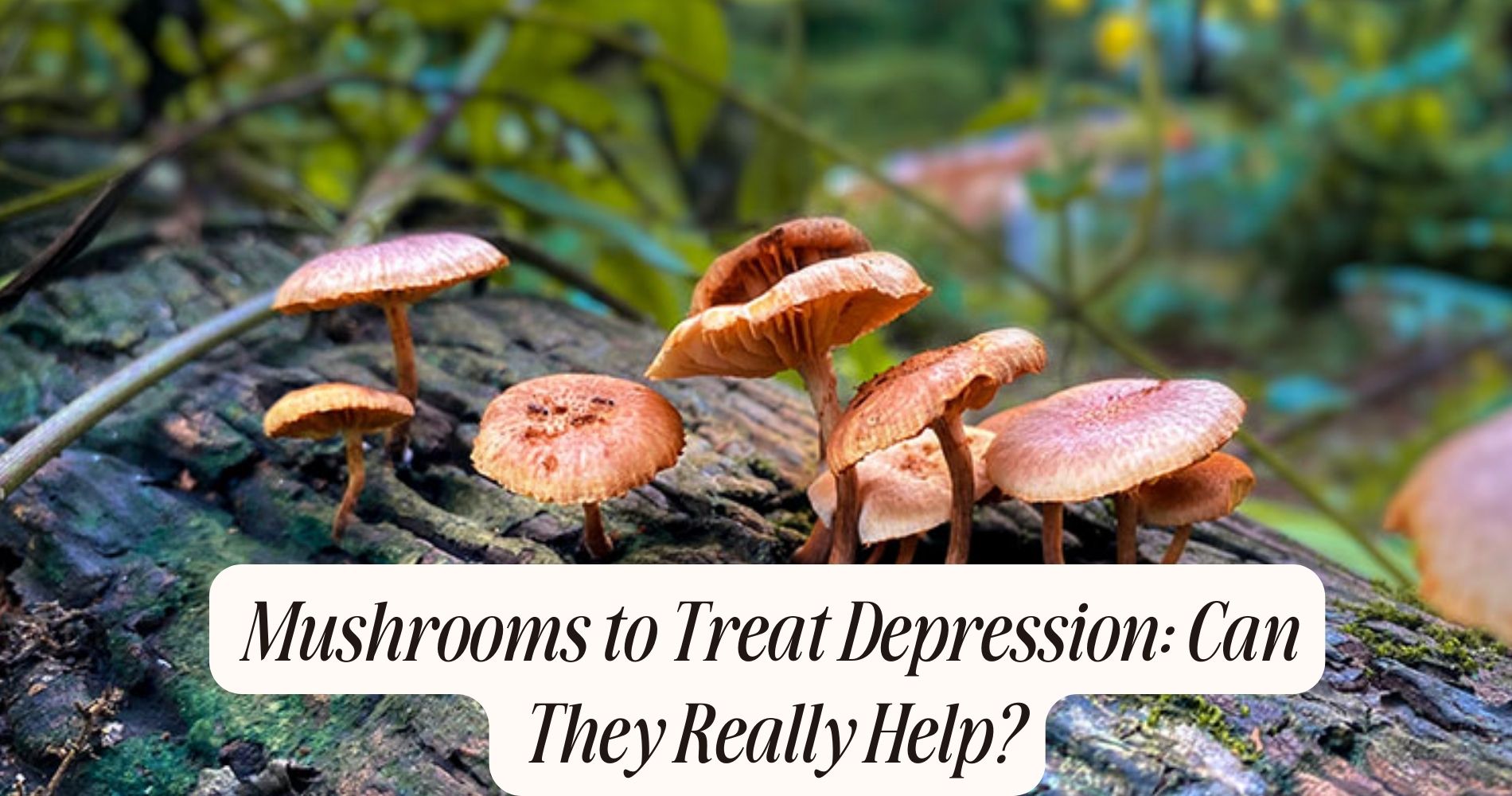
Are Mushrooms High in Protein? What You Need to Know
Are mushrooms high in protein? Mushrooms aren't packed with protein, offering around 3 grams per 100 grams compared to lentils and chickpeas' 9 grams. They do shine, however, with B vitamins, selenium, and antioxidants, which enhance your diet. While not a primary protein source, they complement other plant-based proteins to round out meals. Including mushrooms can enrich your diet nutritionally and flavorfully. Learn more about using these versatile fungi to improve your plant-based meals.
Understanding the Nutritional Composition of Mushrooms
Mushrooms, often celebrated for their unique flavors and textures, are also nutritional powerhouses deserving of attention. When you explore their nutritional composition, you'll discover that mushrooms offer a rich array of essential nutrients.
They're packed with vitamins such as B-complex and D, and minerals like selenium and potassium. One vital aspect often overlooked is their dietary fiber content. This fiber aids digestion, promotes satiety, and supports a healthy gut.
Mushrooms also provide antioxidants which help in combating oxidative stress. Including them in your diet can enhance your overall nutrient intake. Opt for various types and incorporate them into meals for a balanced approach.
Comparing Protein Content in Different Mushroom Varieties
While appreciating the rich nutritional profile of mushrooms, let's take a closer look at how they compare regarding protein content across different varieties.
White button mushrooms, the most common type, contain about 3.1 grams of protein per 100 grams. Portobello mushrooms are slightly higher, offering around 3.6 grams. Shiitake mushrooms provide approximately 2.2 grams, while oyster mushrooms are similar at 3.3 grams.

For a more protein-rich option, consider maitake mushrooms, which deliver around 3.9 grams.
When conducting a protein comparison among these mushroom varieties, you'll notice subtle differences. Although mushrooms aren't the highest source of protein, they can be a beneficial addition to a balanced diet, especially when combined with other protein-rich foods to meet your dietary needs.
Analyzing Protein Levels in Comparison to Other Plant-Based Sources
When considering plant-based protein options, it's essential to examine how mushrooms stack up against other sources like legumes, nuts, and grains.
Regarding protein content, mushrooms offer around 3 grams of protein per 100 grams, which is relatively low compared to lentils or chickpeas that provide approximately 9 grams per 100 grams. Nuts and seeds can offer even more, ranging from 15 to 30 grams per 100 grams.
This mushroom protein comparison highlights that while mushrooms contribute to your protein intake, they mightn't be as protein-dense as other plant protein sources.
To maximize your diet, you should incorporate a variety of plant-based proteins, using mushrooms as a complementary addition rather than the primary source. Balancing these options guarantees nutritional adequacy.
Health Benefits Beyond Protein Content
Although mushrooms mightn't be your primary protein source, they offer an array of health benefits that extend beyond their protein content. Rich in antioxidant properties, mushrooms help combat oxidative stress, which can reduce inflammation and lower the risk of chronic diseases. Specific varieties, like shiitake and maitake, are particularly potent.

Additionally, mushrooms provide immune support. They contain beta-glucans, compounds that stimulate your immune system's ability to fend off infections. Regular consumption of mushrooms can enhance your body's defense mechanisms, making you less susceptible to common illnesses.
To maximize these benefits, incorporate a variety of mushrooms into your meals, ensuring a diverse intake of nutrients. In doing so, you'll support overall health while enjoying their unique flavors.
Incorporating Mushrooms Into a Balanced Diet
To seamlessly incorporate mushrooms into a balanced diet, consider their versatility and nutritional profile. Mushrooms are low in calories yet rich in essential nutrients like B vitamins and antioxidants, making them a valuable addition to any meal.
You can enhance dietary balance by experimenting with various mushroom recipes, such as adding them to salads, soups, or stir-fries. Their umami flavor can replace or complement meat, offering a satisfying taste while maintaining nutrient intake.
Research shows that pairing mushrooms with other protein sources like beans or quinoa boosts overall nutrition. Additionally, using mushrooms as a meat substitute in dishes like burgers or tacos reduces saturated fat intake.
Tips for Maximizing Protein Intake From Mushrooms
Maximizing the protein intake from mushrooms requires strategic pairing and preparation techniques. One effective method is to combine mushrooms with other protein-rich foods like legumes or quinoa, thereby boosting the overall protein content of your meal.
When it comes to mushroom preparation, chopping them finely can enhance their texture, allowing them to blend seamlessly with other protein sources. For ideal absorption, employ cooking techniques such as sautéing or grilling, which preserve mushrooms' nutritional content while enhancing flavor.

Avoid boiling, as it can leach nutrients. Incorporating ingredients like soy sauce or nutritional yeast during cooking can also amplify the umami taste, making dishes more satisfying. By focusing on these strategies, you can maximize the protein contribution of mushrooms in your diet.
Exploring the Role of Mushrooms in Plant-Based Diets
When integrating mushrooms into plant-based diets, their versatility and nutritional profile make them a valuable ingredient. Various mushroom varieties, such as shiitake, portobello, and cremini, offer unique flavors and textures to enhance your meals.
They're not just about taste; mushrooms provide essential nutrients like B vitamins, selenium, and antioxidants, supporting overall health.
To maximize their benefits, consider mushrooms as dietary inclusions in stir-fries, soups, or as meat substitutes in burgers and tacos.
While mushrooms aren't the highest in protein, they complement plant-based proteins like beans and lentils effectively.
By diversifying your mushroom varieties, you guarantee a broader range of nutrients in your diet.
Practical and delicious, mushrooms are a plant-based staple worth exploring.
Elevate Your Nutrition with SUPER MUSHROOM GUMMIES
Looking for an easy way to enjoy the benefits of 10 powerful mushrooms? SUPER MUSHROOM GUMMIES by Well Gummies make it effortless! These vegan, berry-flavored gummies deliver a natural boost for energy, focus, and immune support—without the jitters or crash. Packed with functional mushrooms, they fuel your body and mind for all-day vitality. Try them today and experience the power of mushrooms in a delicious, convenient way!
Frequently Asked Questions
Can Mushrooms Help With Weight Loss?
You can incorporate mushroom varieties into your diet for weight loss. They're low in calories and high in fiber, which promotes satiety. Studies show replacing higher-calorie foods with mushrooms can aid weight loss effectively.
Are Mushrooms a Good Source of Vitamins and Minerals?
You're wondering if mushrooms are nutrient-dense. They are! Mushrooms offer significant vitamin content, including B vitamins and minerals like selenium. Incorporate them into your diet for a practical boost in essential nutrients without high calories.
How Do Mushrooms Affect Gut Health?
You'll find mushrooms beneficial for gut health due to their prebiotic fibers, which enhance your gut microbiome. They offer digestive benefits by promoting good bacteria growth, potentially improving digestion and nutrient absorption based on scientific studies.
Are There Any Allergens Associated With Mushrooms?
You should know that mushroom allergies, while not common, can occur due to allergenic proteins found in some varieties. If you experience symptoms like itching or swelling, consult an allergist to determine your specific triggers and manage them effectively.
Can Mushrooms Be Eaten Raw or Should They Be Cooked?
You can eat mushrooms raw, but cooking methods like sautéing or grilling enhance flavor and digestibility. Raw consumption may offer some nutrients, but cooking often increases their bioavailability and reduces potential toxins. Consider your preferences and dietary needs.
Conclusion
Incorporating mushrooms into your diet offers diverse nutritional benefits, even though they're not particularly high in protein compared to other plant-based sources. By choosing varieties like shiitake or portobello and combining them with other protein-rich foods, you can effectively boost your intake. Mushrooms also provide valuable nutrients like vitamins, minerals, and antioxidants. So, don't just focus on their protein content; enjoy mushrooms as a delicious and versatile addition to a well-rounded, plant-based diet.




